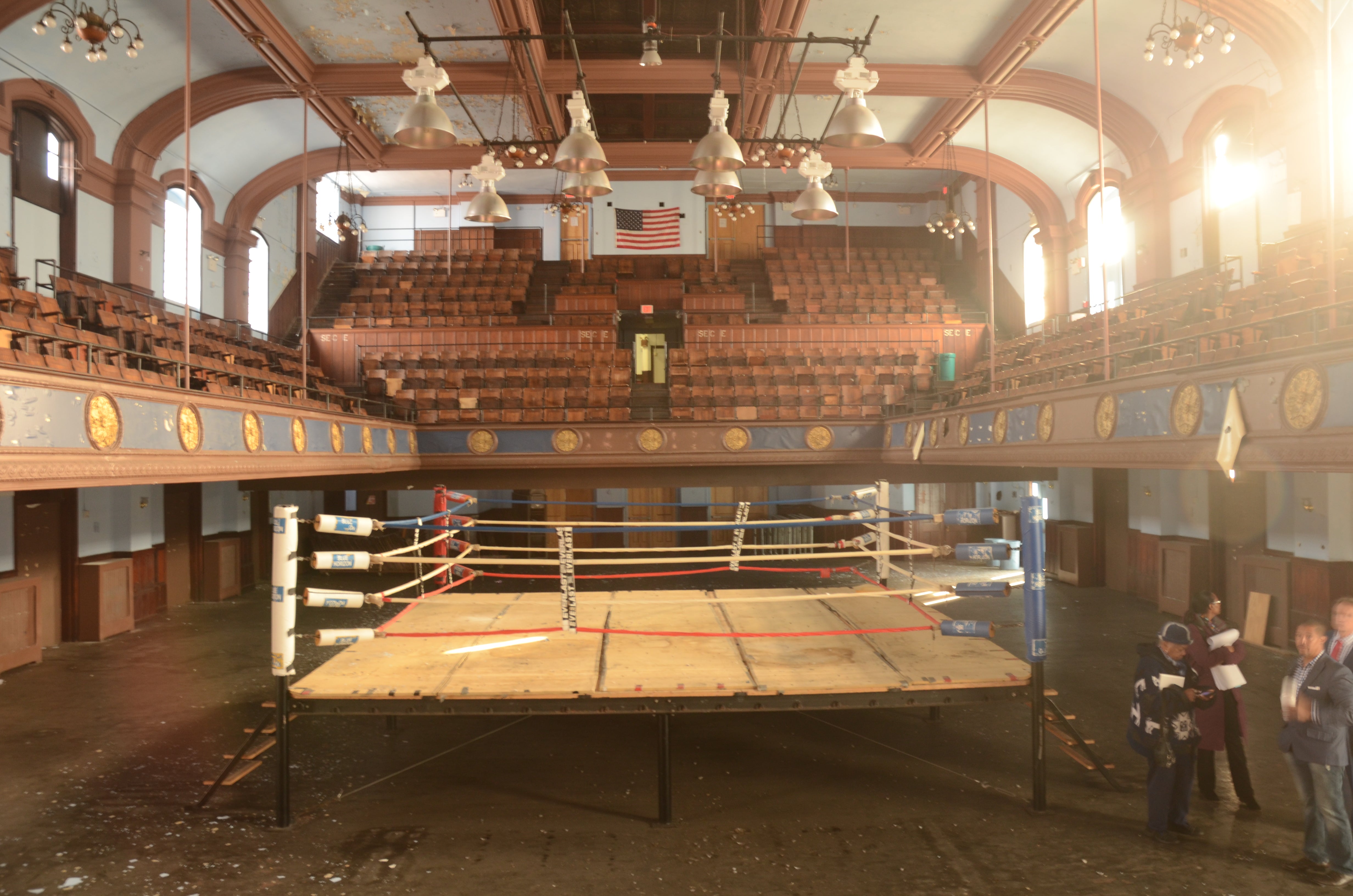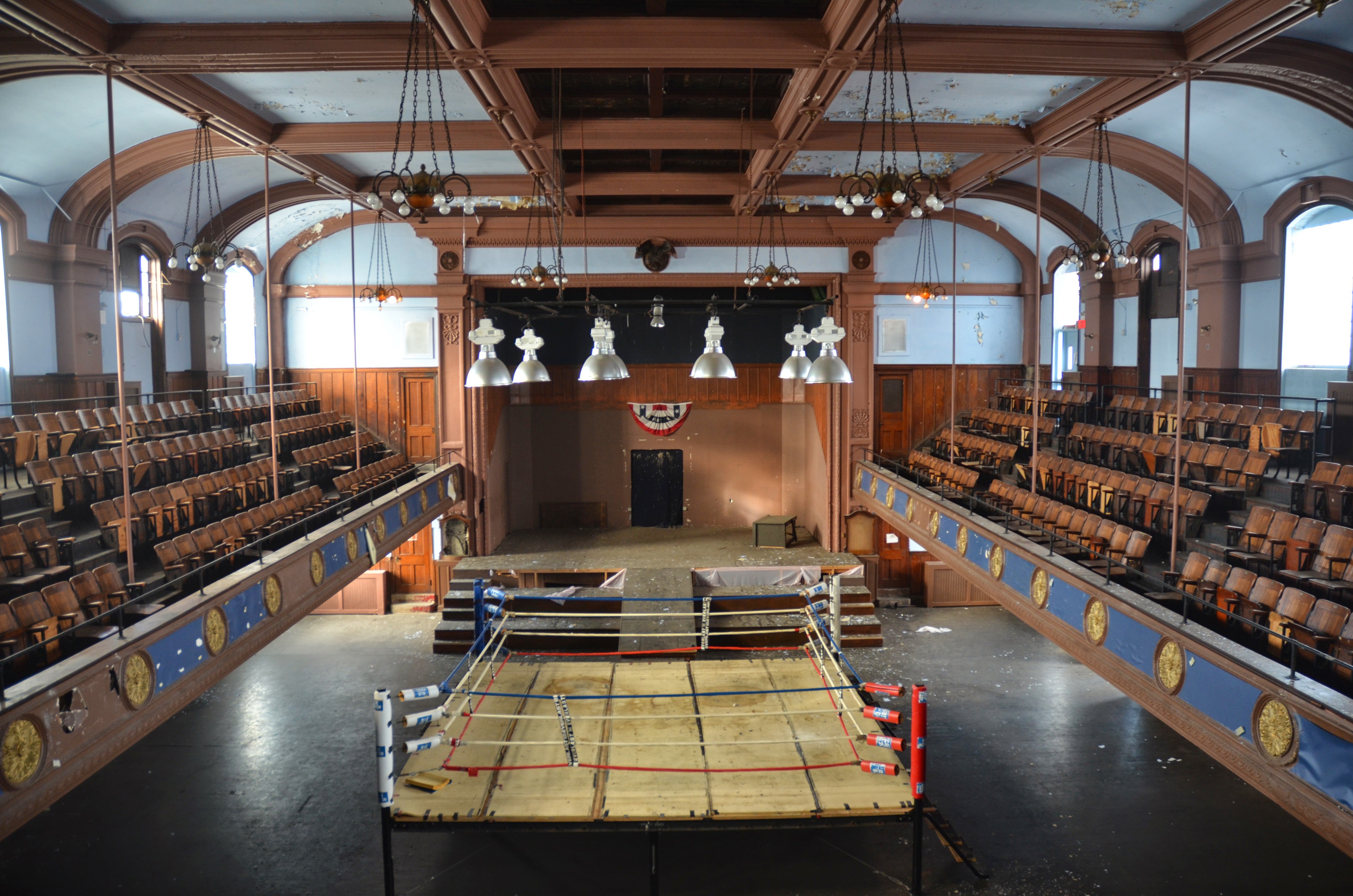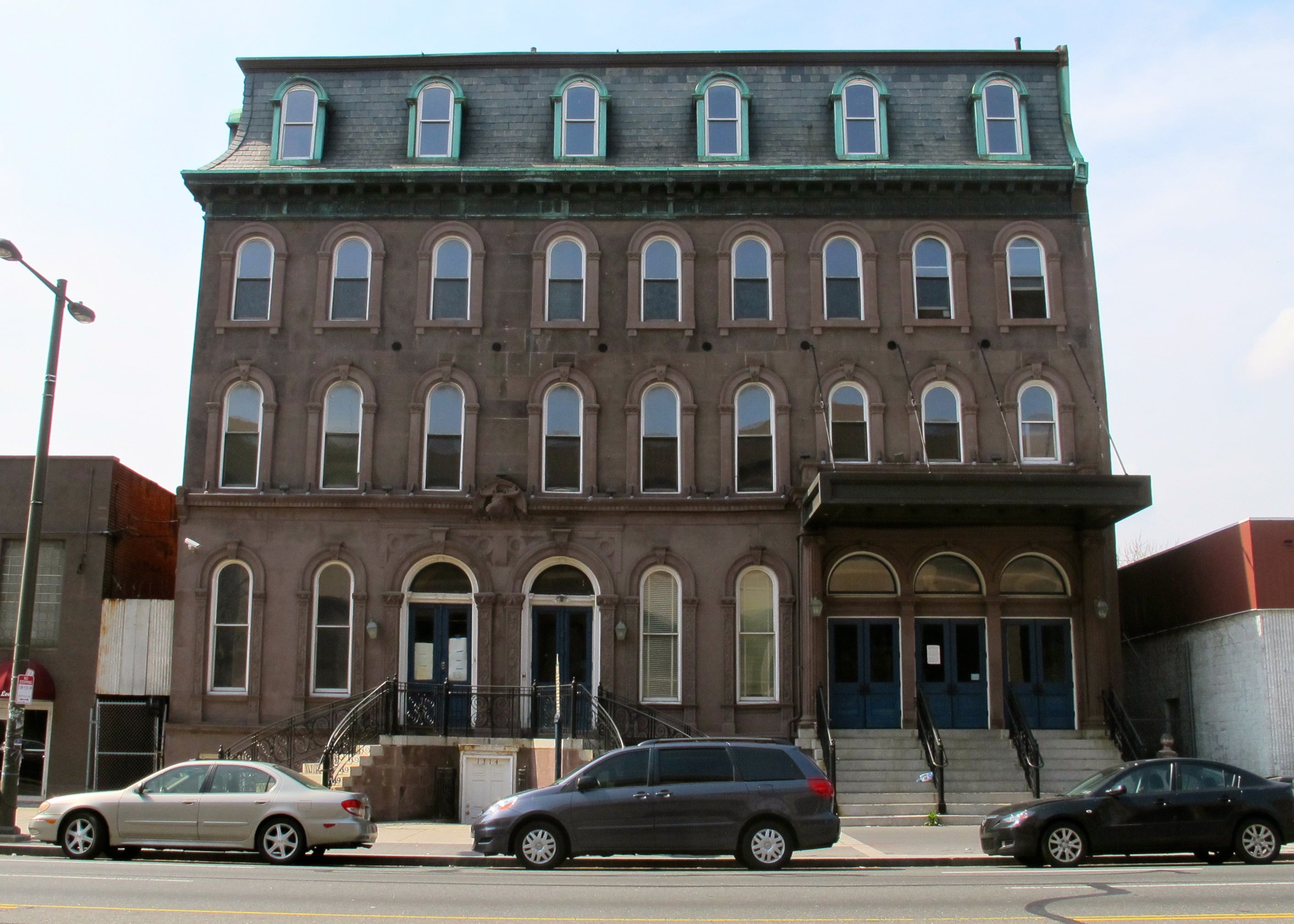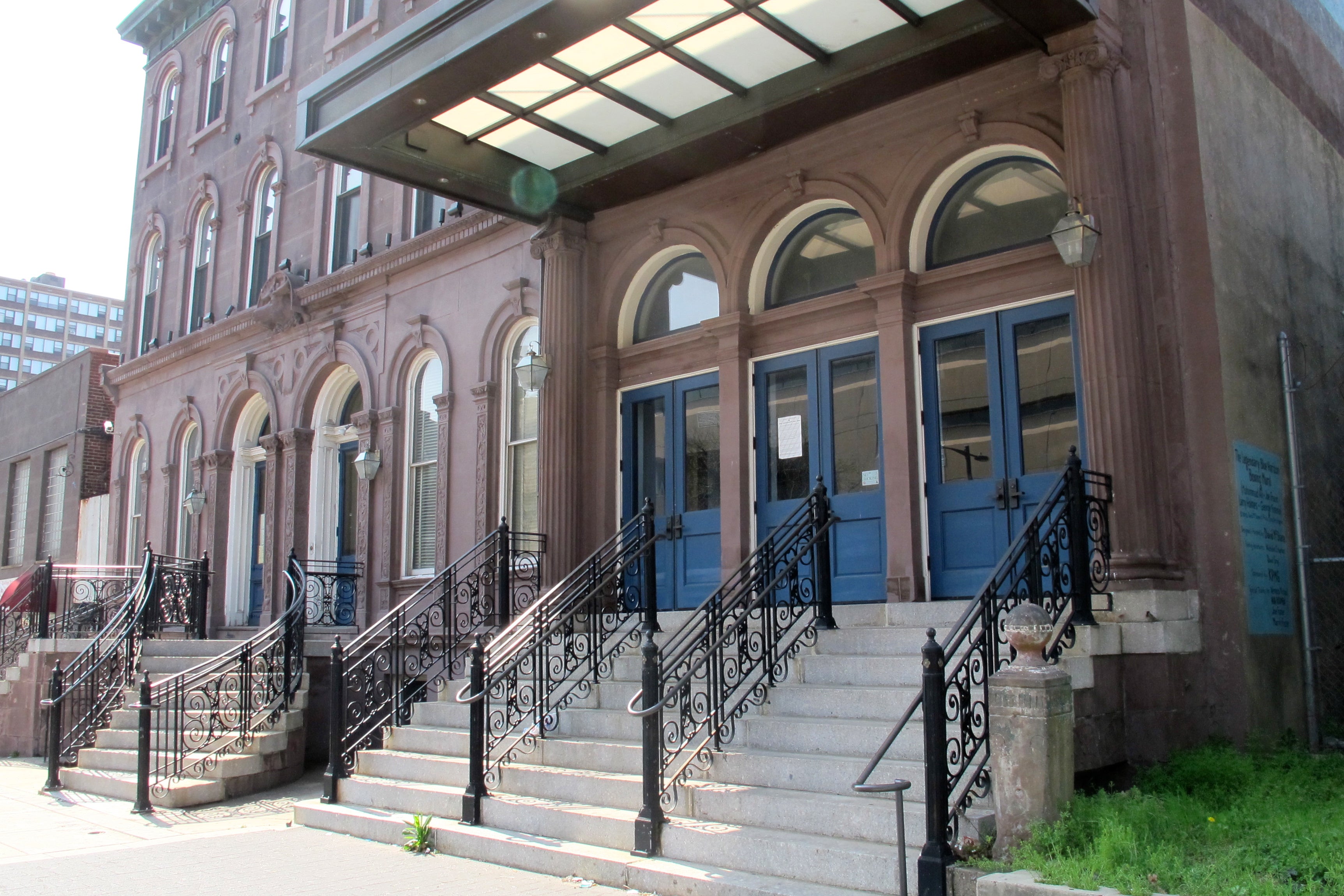Saving face: Commission votes to protect Blue Horizon facade, not interior
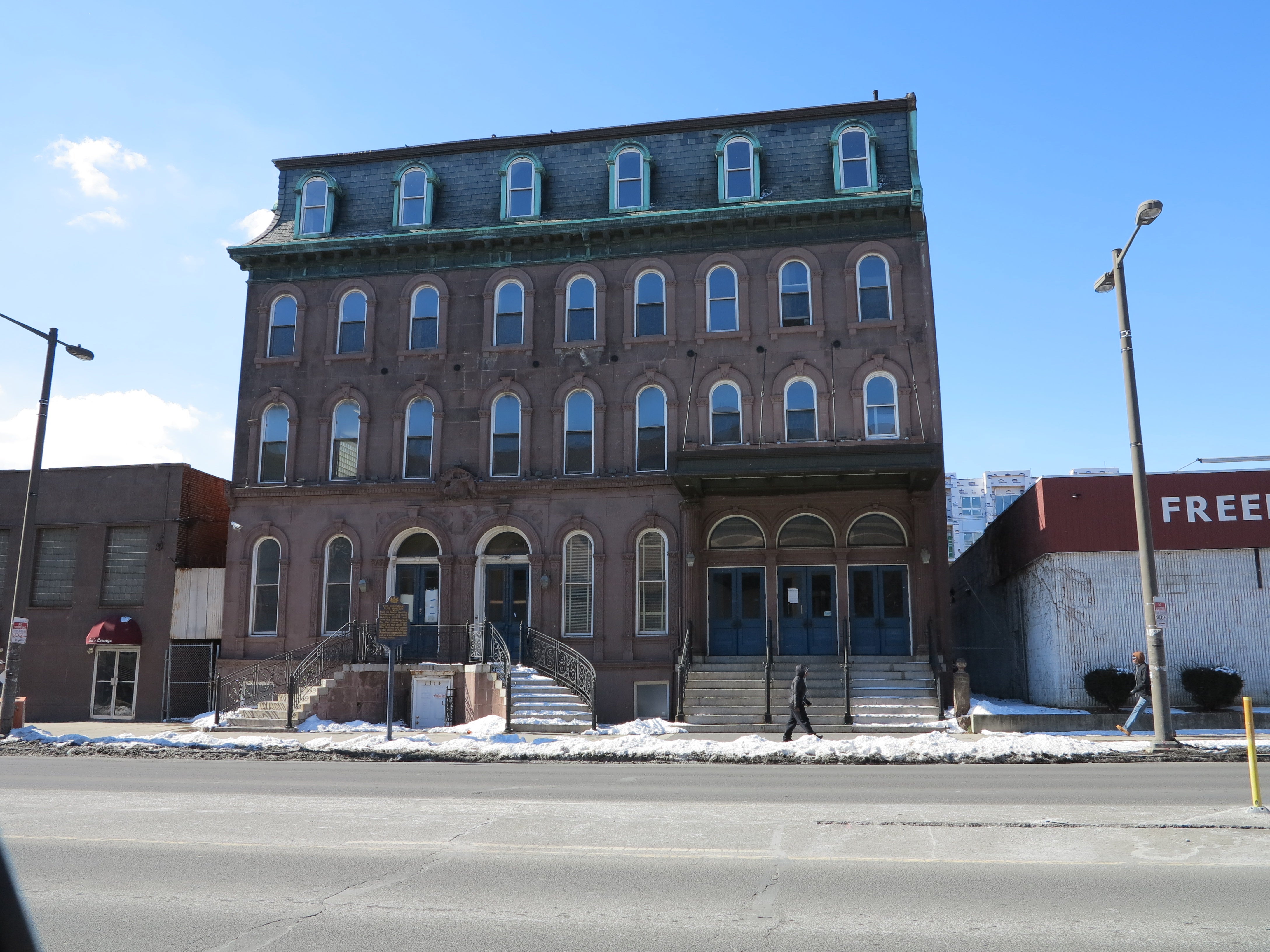
The Philadelphia Historical Commission voted on Friday to add the front facade of the Legendary Blue Horizon boxing venue on North Broad Street to the local Register of Historic Places. At the same time, the Commission rejected a nomination to protect the interior auditorium, where the fighting took place throughout the latter half of the 20th century.
The decision was part victory and part defeat for the Preservation Alliance of Greater Philadelphia. The group had submitted nominations for the entire structure, which was built in the 1870s, to be designated historic, which would prevent developers from tearing down or altering the structure without going through a rigorous approval process.
It was a full victory for the building’s owners and a group of developers who’ve been working for years to convert the building into a luxury hotel and music venue. Leslie Smallwood-Lewis said that her group, Mosaic Development Partners, had always intended to keep the front facade of the building standing. She said the Commission’s decision to reject the interior designation could have compromised Mosaic’s ability to raise money from funders who could become confused about what regulations applied to the building.
“I love the Blue Horizon,” said Vernoca L. Michael, an owner of the building and the former CEO of the boxing venue, which closed for good in 2010. “But I also am a realist. It would not have been cost-effective to [have the interior historically protected.]”
It’s not clear precisely what impact a full designation of the building would have had. The owners of the building have already pulled a permit to demolish the building, and the Preservation Alliance acknowledged in its nominations that the group had the right to tear it down. The Alliance said that the nominations were intended to protect the building in the event that Mosaic can’t raise the money it needs to complete the hotel project.
“I recognize that designation of anything is always within the discretion of the Commission,” said Ben Leech, director of advocacy for the Preservation Alliance. “I’m personally disappointed that they chose to limit that designation so narrowly, so obviously tailored for a specific project that we’ve been saying may or may not happen. Our intention of providing a safety net in the event that this project doesn’t go forward—now that they’ve had the opportunity to assert more jurisdiction and have chosen not to, I only hope that it doesn’t come back to bite everybody.”
The Commission’s decision signals a cautiousness about designating the interiors of certain buildings. Commissioner Richardson Dilworth had argued during a committee hearing that the auditorium of the Blue Horizon was a “tolled space,” meaning visitors had to be invited or pay to enter the area, rather than a true public space. Dilworth said on Friday that the Commission should be able to designate the interiors of private properties in some cases, but only when it advances or protects a public good. The Blue Horizon isn’t that case, he said.
Ben Leech said Friday’s vote fell short of truly preserving the value of the building, but prevents the worst case scenario: a full demolition of the structure for a proposal that doesn’t work out.
“I personally think that saving the facade isn’t preservation,” Leech said, “but it is better than nothing.”
Full video of hearing below
WHYY is your source for fact-based, in-depth journalism and information. As a nonprofit organization, we rely on financial support from readers like you. Please give today.



